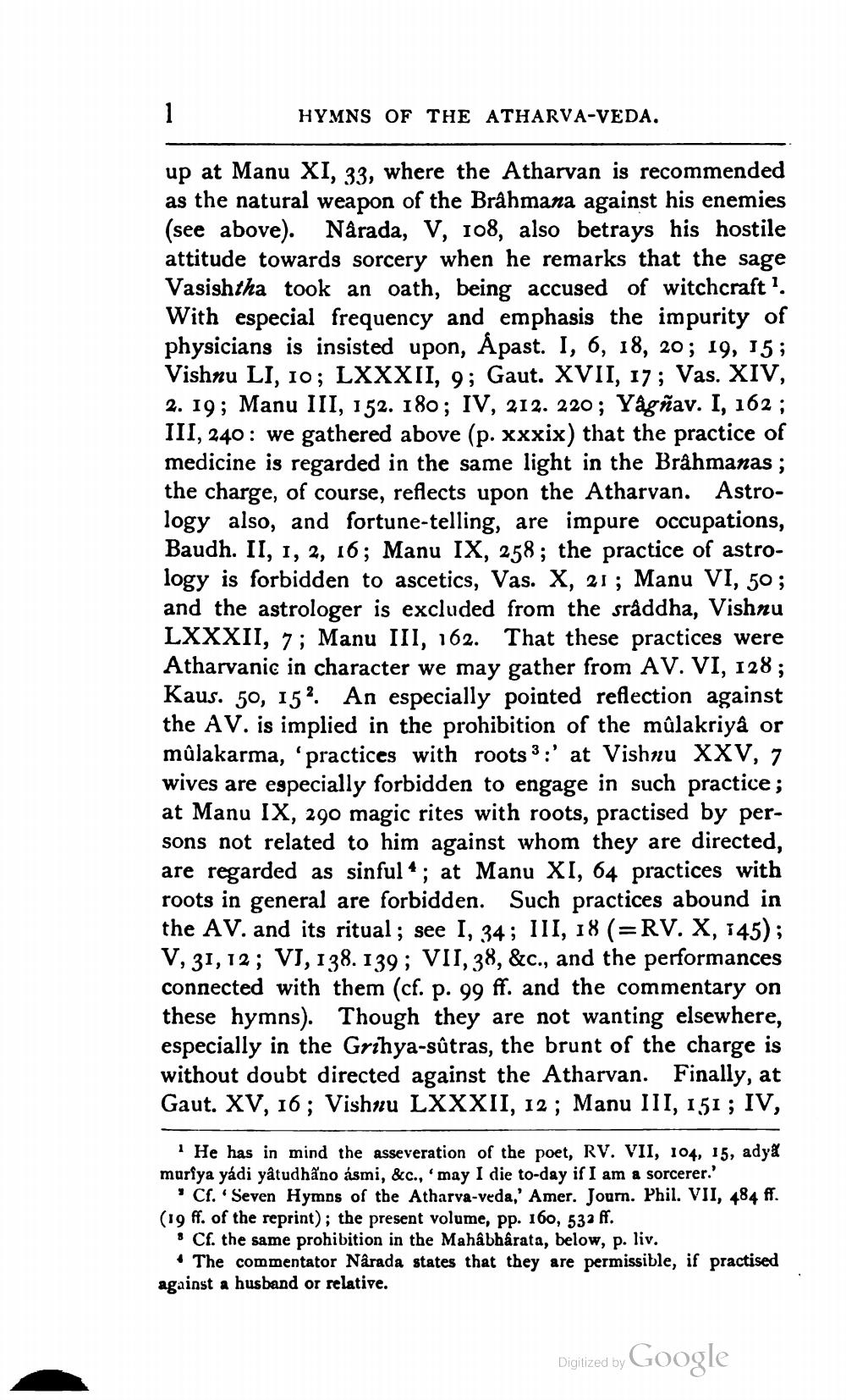________________
1
up at Manu XI, 33, where the Atharvan is recommended as the natural weapon of the Brahmana against his enemies (see above). Nârada, V, 108, also betrays his hostile attitude towards sorcery when he remarks that the sage Vasishtha took an oath, being accused of witchcraft'. With especial frequency and emphasis the impurity of physicians is insisted upon, Åpast. I, 6, 18, 20; 19, 15; Vishnu LI, 10; LXXXII, 9; Gaut. XVII, 17; Vas. XIV, 2. 19; Manu III, 152. 180; IV, 212. 220; Yagñav. I, 162; III, 240: we gathered above (p. xxxix) that the practice of medicine is regarded in the same light in the Brahmanas; the charge, of course, reflects upon the Atharvan. Astrology also, and fortune-telling, are impure occupations, Baudh. II, 1, 2, 16; Manu IX, 258; the practice of astrology is forbidden to ascetics, Vas. X, 21; Manu VI, 50; and the astrologer is excluded from the sråddha, Vishnu LXXXII, 7; Manu III, 162. That these practices were Atharvanic in character we may gather from AV. VI, 128; Kaus. 50, 152. An especially pointed reflection against the AV. is implied in the prohibition of the mûlakriyâ or mûlakarma, 'practices with roots 3:' at Vishnu XXV, 7 wives are especially forbidden to engage in such practice; at Manu IX, 290 magic rites with roots, practised by persons not related to him against whom they are directed, are regarded as sinful; at Manu XI, 64 practices with roots in general are forbidden. Such practices abound in the AV. and its ritual; see I, 34; III, 18 (=RV. X, ¡45); V, 31, 12; VI, 138. 139; VII, 38, &c., and the performances connected with them (cf. p. 99 ff. and the commentary on these hymns). Though they are not wanting elsewhere, especially in the Grihya-sûtras, the brunt of the charge is without doubt directed against the Atharvan. Finally, at Gaut. XV, 16; Vishnu LXXXII, 12; Manu III, 151; IV,
HYMNS OF THE ATHARVA-VEDA.
He has in mind the asseveration of the poet, RV. VII, 104, 15, adya murfya yadi yâtudhano ásmi, &c., ' may I die to-day if I am a sorcerer.'
* Cf. 'Seven Hymns of the Atharva-veda,' Amer. Journ. Phil. VII, 484 ff. (19 ff. of the reprint); the present volume, pp. 160, 532 ff.
Cf. the same prohibition in the Mahâbhârata, below, p. liv.
The commentator Nârada states that they are permissible, if practised against a husband or relative.
Digitized by Google




